The rich aroma of freshly brewed coffee intertwined with fervent debates, intellectual discourse, and the rustle of newsprint – this was the familiar scene at the heart of the 17th-century Penny Universities. An era where learning was as accessible as a cup of joe, and knowledge was not confined within the walls of traditional academic institutions. Instead, it thrived amidst the bustling backdrop of coffeehouses, transforming these modest establishments into vibrant hubs of enlightenment – a testament to the power of social learning.
Today, we stand on the precipice of a new age of information and knowledge. But as we forge ahead, it’s vital to glance back and draw lessons from history. It brings us to the exploration of these coffee shops, a compelling narrative of democratized education that resonates with our modern quest for accessible knowledge. This article dives into the intriguing world of Penny Universities, tracing their origins, journey, and underlying cultural and socio-economic implications. Furthermore, we’ll examine the remarkable resurgence of these knowledge powerhouses in today’s digital era and their profound impact on our contemporary knowledge economy. Join us as we journey through the annals of educational history, drawing parallels between the past and present, and perhaps predicting the future of learning.
Penny Universities: Key Takeaway
- Democratic Access to Knowledge: Penny Universities, also known as coffeehouses, through their open and inclusive approach, demonstrated early on the importance of democratic access to knowledge, setting a precedent for the modern push towards more equitable access to information.
- Lifelong Learning: The ethos of these coffeehouses emphasized the importance of continuous learning, a principle that holds immense relevance today, in a world marked by rapid changes and the need for constant upskilling.
- Community Building: These coffee shops fostered a strong sense of community through intellectual discourse, a concept that resonates in today’s digital age where building connections and fostering meaningful conversations is vital.
- Resurgence in the Digital Age: With the advent of technology, the spirit of these venues is experiencing a resurgence in the form of online forums and MOOCs, which facilitate open, global intellectual exchanges.
- Lessons for the Knowledge Economy: The model of these coffeehouses offers valuable lessons for the modern knowledge economy, emphasizing the importance of democratizing knowledge, fostering lifelong learning, and creating spaces for open intellectual dialogue.
Origin of Penny Universities
The tale of these venues, like many good stories, begins with an unexpected hero – the humble coffeehouse. But before we immerse ourselves in their birth and evolution, it’s essential to understand the backdrop of the period and how it fostered the growth of these intellectual hubs.
The Birthplace: London Coffeehouses
In the midst of the 17th century, the bustling city of London was transformed by the emergence of an intriguing new cultural phenomenon – coffeehouses. These establishments were more than just places to partake in the indulgence of the recently popularized beverage, coffee. At the onset, the primary appeal lay in the novelty and exotic charm of the drink, a tantalizing elixir born from a plant once revered solely for its medicinal properties.

However, as the city’s denizens warmed up to the unique allure of coffee, these coffeehouses rapidly metamorphosed into dynamic social hubs. A broad cross-section of society frequented these establishments, underscoring their inclusive nature. From erudite scholars, thriving merchants, imaginative writers, influential politicians to everyday folk, all found a home within the welcoming confines of these coffeehouses.
Unlike the typical drinking houses frequented by the plebes or roués, often depicted as the epitome of unbridled revelry, the coffeehouses offered a refreshing departure. They emerged as distinctive locales frequented by “virtuosi” – the learned, the skilled, and the enlightened. These spaces also welcomed the “wits,” those gifted with quick thinking and a sharp tongue. These patrons appreciated the stimulating discussions that flowed as freely as the coffee itself, shaping the culture of discourse and intellectual camaraderie that became synonymous with these 17th-century London coffeehouses.
In essence, the shift from considering coffee merely as a medicinal plant to recognizing its potential as a social catalyst engendered a unique opportunity. It was an opportunity to create spaces that served more than just coffee to patrons. These coffeehouses became pivotal community centers, brewing not just coffee but also ideas, debates, and shared experiences, significantly shaping London’s social and cultural fabric.
The First Wave
The genesis of coffeehouses in England dates back to around 1650, when Oxford saw the establishment of its very first café, christened as “The Angel.” It was not long before another followed, The Queen’s Lane Coffee House, which opened its doors in 1654 and boasts of an uninterrupted operation to this day, bearing testament to its historic legacy.

Soon thereafter, the concept of coffeehouses journeyed from the academic city of Oxford to the bustling cityscape of London. Spearheading this movement was a visionary by the name of Pasqua Rosée. It was Rosée who introduced London to its inaugural coffeehouse in 1652, setting a precedent for many such establishments to follow. Among them was The Temple Bar, the second coffeehouse of London, which graced the city’s landscape in 1656.
These pioneering coffeehouses were more than just places to enjoy a hot, invigorating brew. They emerged as robust platforms for intellectual engagement and discourse, where ideas were exchanged as freely as the coffee poured. Patrons from all walks of life convened within their cozy confines, fostering a sense of camaraderie and community. These iconic establishments truly heralded an era of cultural and intellectual renaissance in England, leaving a lasting imprint on the societal landscape.
Democratizing Knowledge Through the Power of Conversation
Within the warm, coffee-scented confines of London’s many coffeehouses, the 18th-century’s intellect found a unique home. These establishments earned a rather charming sobriquet, the ‘Penny Universities.’ For the cost of a single penny, one could not only indulge in a cup of richly brewed coffee but also immerse oneself in a wealth of stimulating discussions. From the lofty realms of philosophy to the intriguing world of politics, and from the vibrant canvas of literature to the probing inquiries of science, all subjects were laid bare on the tables of these coffeehouses. (1)

However, the charm of these Penny Universities didn’t merely reside in the breadth of topics they entertained. They stood as democratic bastions of knowledge and intellectual exchange. These coffeehouses tore down the traditional barriers of social and economic standing. Here, a nobleman could engage in a hearty debate with a humble scholar, and a wealthy merchant might find himself outwitted by a sharp-witted artisan. The air was thick with the tantalizing aroma of coffee and the hum of egalitarian discourse. More than just cafes, these bustling coffeehouses were vibrant intellectual forums, kindling the light of knowledge and dialogue across all strata of society.
Educational Democracy: Knowledge for a Penny

In these ‘Penny Universities’, education became a commodity as accessible as coffee. They served as an antidote to the elitist traditional universities, only accessible to the privileged few.
- Breaking Barriers: For a mere penny, any individual could access a vast array of intellectual discourse, breaking down the barriers that typically hindered the dissemination of knowledge.
- A Melting Pot: These venues were melting pots of diverse ideas, opinions, and perspectives, furthering intellectual growth and cultural understanding. The price of entry was nominal, but the knowledge and insights gained were invaluable.
- Informal Education: Despite the absence of formal instruction or structured curriculum, these coffeehouses were significant educators of their time. The learning derived from engaging in debates, conversations, and observations was as enriching, if not more so, than traditional pedagogical methods.
A Dive into the Character and Dialogue
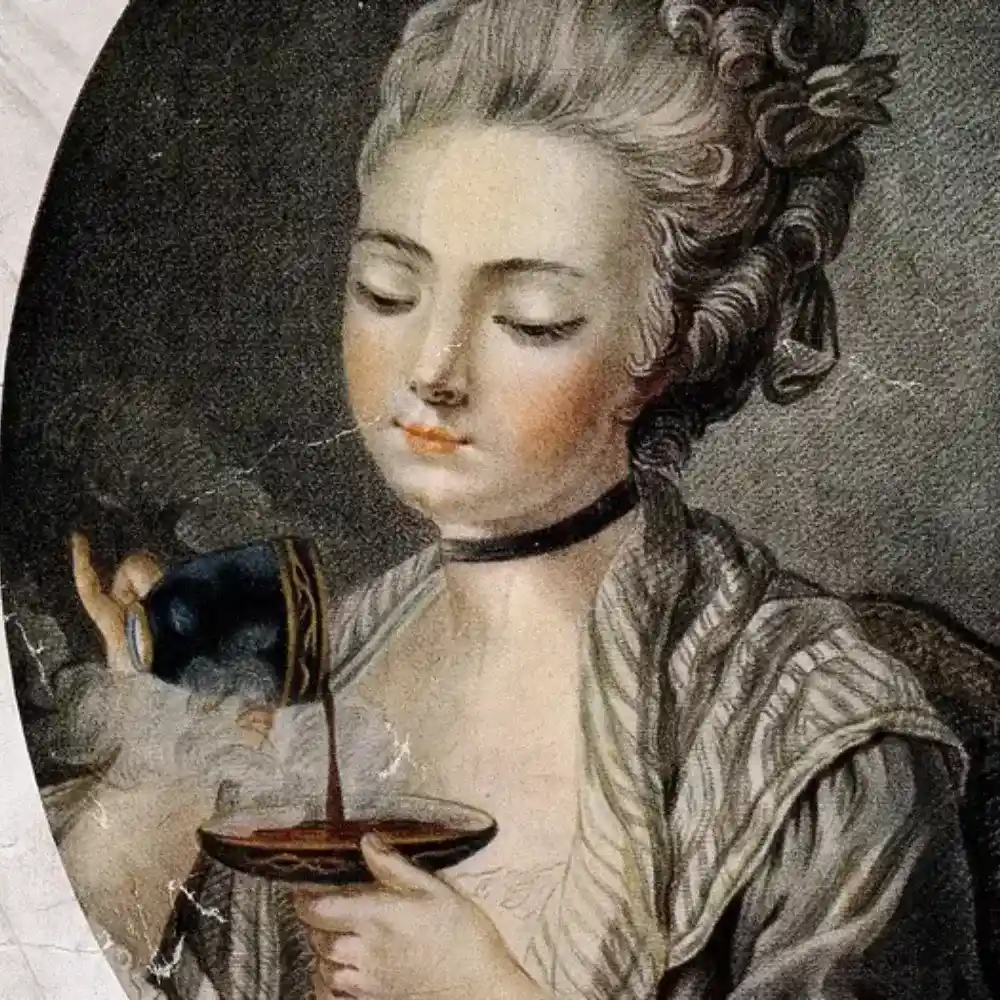
In the vibrant tapestry of history, we find a remarkable institution that blossomed from the mid-1660s, following the monarchy’s grand Restoration, and graced society until the wane of the 18th century. These unique social hubs, fondly known as ‘Penny Universities,’ began as a mere curiosity, soon metamorphosing into a rich part of the town’s daily life.
The Social Magnet of London
Steeped in an air of casualness, these establishments became magnets for those craving intellectual stimulation. Their charm, coupled with their affordability and ubiquity, made them the heart of social interaction, driving their popularity skywards. They provided a stage where, paradoxically, the boundaries of class melted away and yet remained rigidly in place. Londoners, famed for their indomitable spirit, were drawn like moths to the warm glow of these establishments, although their reserve endured in these public spaces.
The Ritual of Polite Discourse

Upon climbing the slender staircases leading to their chosen havens, patrons would not plunge into conversation immediately. Instead, they would pause at the threshold, allowing their eyes to sweep over the bustling room. Before sharing the news of the day or engaging in intellectual banter, they first ensured that those they knew were faring well, an enduring testament to the quintessential British courtesy.
The Dance of Coffeehouse Dialogues
Indeed, the conversations that flowed within these Penny Universities were as much a part of their character as the aromatic brew they served. Discourse was expected to adhere to certain unwritten rules – a dance of words in which respect and civil discourse were the rhythm. There was an inherent understanding that these coffeehouse dialogues were not the place for coarse or crude language, but rather arenas for refined and intelligent exchanges.
The Microcosm of English Society
Each coffeehouse, in its unique way, served as a mirror to the multifaceted society of the time. They welcomed disparate groups of individuals, each drawn by distinct topics that fueled their intellectual curiosity. From politics to poetry, philosophy to finance, no topic was off-limits. The broad spectrum of subjects under discussion, as well as the range of clientele, underscored the heterogeneity of English society during the heyday of the Penny Universities.
The Socio-Cultural Impact in 17th Century
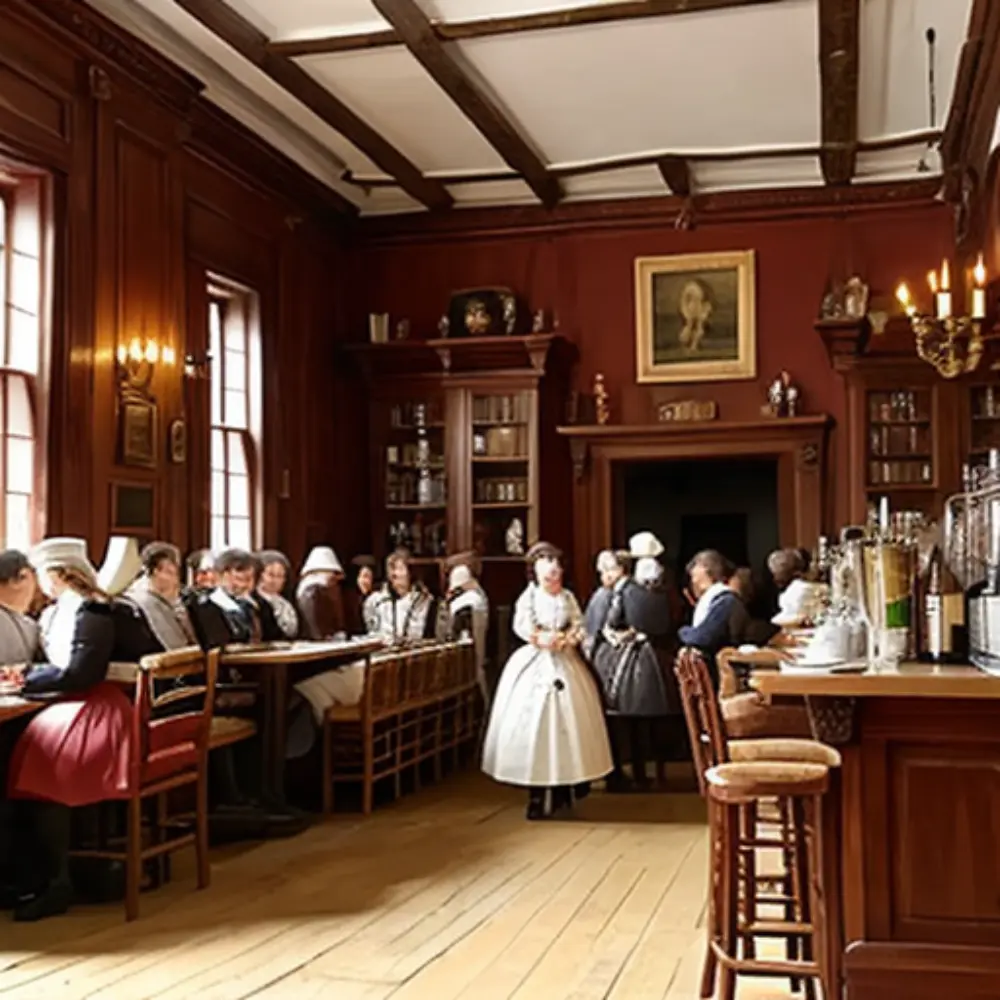
These venues not only disrupted the conventional education system but also left an indelible imprint on the sociocultural landscape of the time.
- A Nurturing Environment: By offering a platform for open discourse and free expression, these coffeehouses cultivated an environment conducive to the free flow of ideas, promoting creativity, innovation, and critical thinking.
- Social Cohesion: They contributed to social cohesion by promoting interaction and dialogue among diverse social classes, helping to narrow the class divide.
- Influence on Literature & Journalism: These coffee shops also played a crucial role in shaping the literary and journalistic landscape. They were hotbeds for writers, poets, and journalists, who drew inspiration from the intellectual discourse and human stories that unfurled within these walls. Many prominent literary works and newspapers of the time found their genesis in these coffeehouse conversations.
The Penny Universities symbolize a period of vibrant intellectual exchange and social transformation. They represent an inspiring chapter in our educational history, underscoring the immense potential of democratized and accessible education. As we navigate the complex, interconnected world of the 21st century, the lessons from these unique coffeehouses are more relevant than ever before.
The Offerings of Penny Universities
The informal, democratic nature of these coffeehouses made them fertile grounds for the exchange of knowledge across a broad spectrum of disciplines. The cross-pollination of ideas led to the flourishing of a vibrant intellectual culture.
Range of Topics: From Science to Politics

These venues hosted discussions on a vast array of topics, reflecting the wide-ranging interests and curiosities of their patrons. No subject was off-limits, and patrons from various backgrounds brought unique perspectives to these conversations.
- Science & Philosophy: Theories about the natural world, philosophical questions about human existence, and the latest scientific discoveries often fueled discourse. This environment of free thought encouraged logical reasoning, skepticism, and curiosity, propelling the scientific revolution of the time.
- Politics & Economics: Conversations around government policies, political ideologies, and economic theories were also popular in these intellectual havens. They provided a platform for patrons to express their views, debate differing perspectives, and gain a deeper understanding of complex political and economic dynamics.
- Art & Literature: Literary critiques, poetry readings, and discussions on artistic movements created a thriving culture of art appreciation and literary exploration within these venues.
The Role of Print Culture
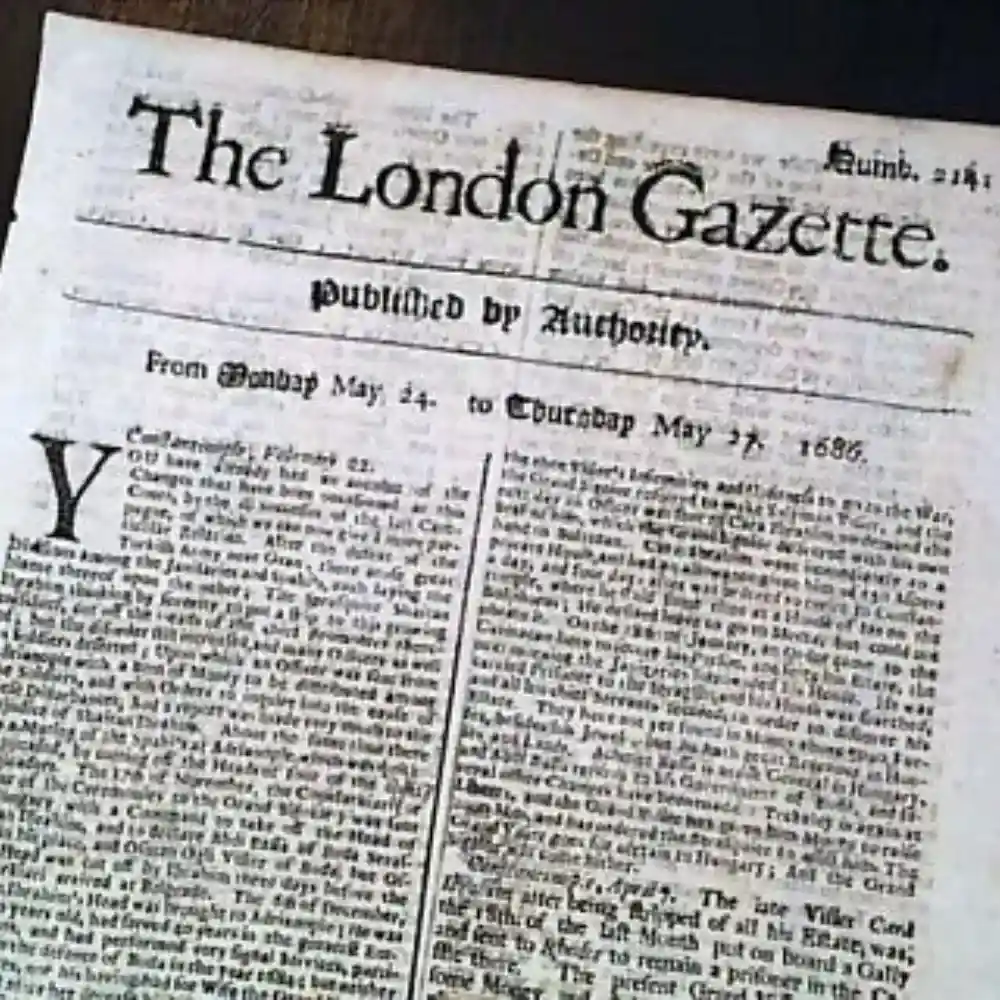
The influence of these coffee shops extended beyond verbal discourse. The rise of print culture had a profound impact on the knowledge exchange within these institutions.
- Broadsheets & Pamphlets: Printed materials, including broadsheets, pamphlets, and early newspapers, were readily available in coffeehouses. They contributed significantly to the intellectual discussions, as patrons would often read these aloud and engage in debates on the topics presented.
- Literary Contributions: The role of print culture was not unidirectional. Works generated within these coffeehouses often found their way to print, contributing to the broader literary and academic landscape.
- Accessibility of Printed Knowledge: Print culture democratized access to knowledge. Printed materials, accessible within the coffeehouses, made written knowledge available to a wider audience, beyond the confines of libraries or academia.
Influential Figures & Their Contributions

These venues were frequented by some of the most influential thinkers of the time, further enriching the intellectual atmosphere.
- Eminent Patrons: These included philosophers like John Locke, writers such as Samuel Pepys, and scientists like Sir Isaac Newton. Their participation in debates and discussions significantly impacted the intellectual climate of these establishments.
- Spread of Ideas: The ideas and theories presented by these influential figures were disseminated through discussions in the coffeehouses, reaching a broader audience. This helped spread progressive ideas and challenged the traditional norms of society.
- Inspiring New Thought: The presence of such influential figures encouraged other patrons to engage in intellectual discourse, fostering a culture of critical thinking and inspiring new lines of thought.
A Beacon of Hope for Intellectual Trade
Among the vibrant populace of Penny Universities emerged figures of academic influence who found themselves leveraging the bustling coffee house scene as an avenue for income generation. One such individual was William Whiston, who succeeded Newton in the esteemed position of Lucasian Professor at Cambridge. Following his controversial ejection from the academic haven due to his unconventional religious perspectives, Whiston discovered an opportunity within the warm embrace of coffee houses. He began offering courses that delved into the depths of the emerging natural philosophy, thereby transforming adversity into a novel source of livelihood.

Francis Hauksbee, celebrated for his scientific demonstrations under Newton’s tenure at the Royal Society, found himself following a similar path. By offering courses that illuminated the mysteries of natural phenomena, Hauksbee supplemented his income in a manner that simultaneously enriched the intellectual landscape of these establishments.
Abraham de Moivre, a Huguenot refugee, mathematician, and avid Newtonian, also eked out a living within the bustling social scene of these coffee houses. Despite his humble circumstances, de Moivre found an eager audience for his skills in teaching mathematics and chess. In addition, he provided a unique service to the coffeehouse patrons by teaching them how to calculate the odds for their various gambling pursuits.
A Crucible for Religious and Political Discourse
As the 18th century unfolded, the coffeehouses evolved into stages for robust discussions on religious and political topics. Benjamin Franklin, renowned polymath and statesman, christened a group of religious dissenters, radical liberal politicians, and scientists as “The Club of Honest Whigs.” This club, a unique assembly of brilliant minds, included personalities such as chemist Joseph Priestley, mathematician Richard Price, natural philosopher John Canton, military physician John Pringle, and physician Benjamin Vaughan.

This group of freethinkers made it a custom to convene every Monday within the iconic London Coffee House in St. Paul’s Churchyard. Their discussions often swung between their respective fields of expertise and extended to broader topics of society and spirituality. These regular congregations underscored the rich interplay of intellectual and spiritual discourses that made Penny Universities unique, vibrant social hubs.
In essence, Penny Universities were more than mere coffeehouses. They were crucibles of innovative thinking and intellectual revolution. Their vibrant environment encouraged exploration across various disciplines, significantly contributing to the intellectual progress of the era. Today, as we grapple with the challenges of the 21st century, there’s much to learn from the multidisciplinary, democratic, and inclusive model of learning epitomized by these institutions.
The Decline of Penny Universities
The vibrancy of these coffeehouses could not withstand the test of time and the sweeping changes that marked the transition to the modern era. The advent of formal education, changing social dynamics, and the march of industrialization collectively led to the decline of these once-thriving hubs of intellectual exchange.
Changing Social Dynamics & the Advent of Formal Education
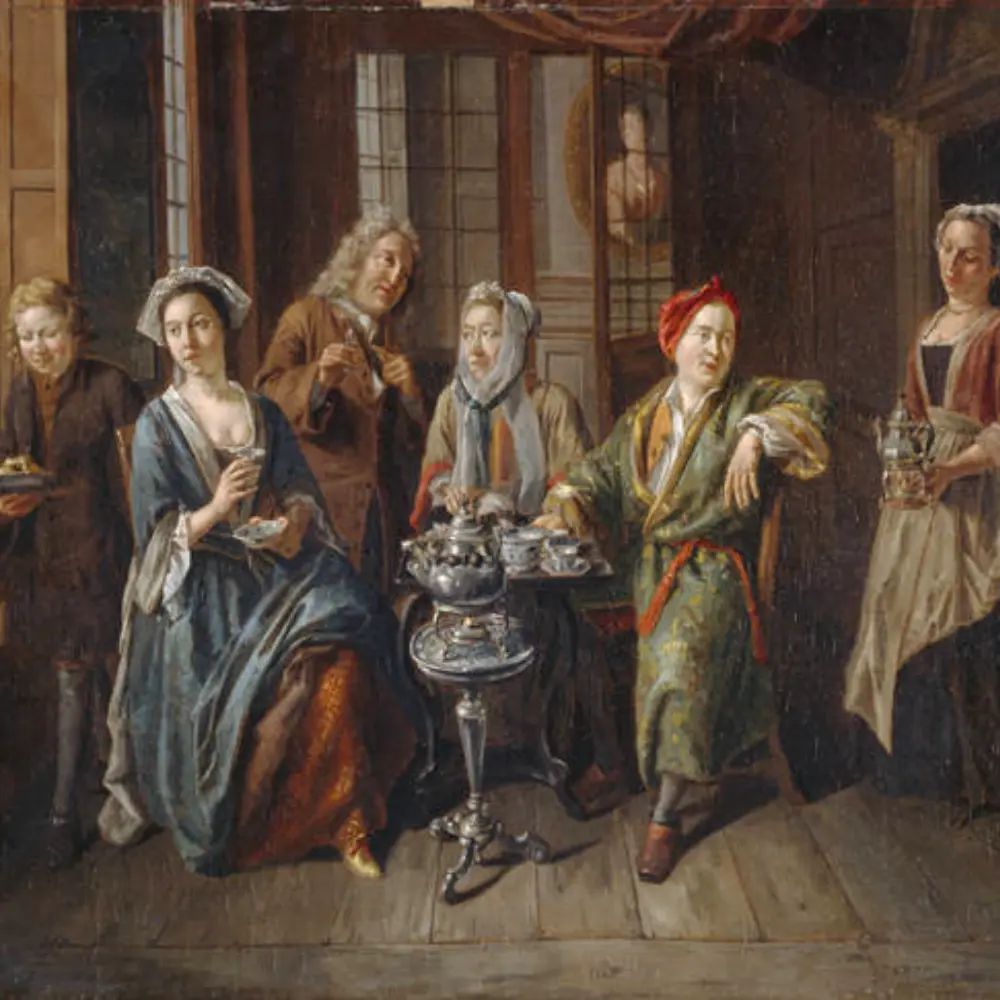
The social fabric underwent a considerable transformation in the 18th and 19th centuries, which was reflected in the declining prominence of Penny Universities.
- Formal Education: As formal educational institutions began to emerge and establish themselves, they offered structured, specialized knowledge. This shift from social to formal education marked the beginning of the end for these coffeehouses.
- Social Evolution: The class barriers that these coffee shops had once blurred began to re-emerge with society’s evolution. The diversity that was their hallmark started to wane as the social elite distanced themselves, favoring exclusive clubs and private gatherings.
From Roasted Beans to Steeped Leaves
London of 1739 was a city fueled by caffeine, with more than 550 bustling coffeehouses serving as social and intellectual hubs. Yet, as the pages of history turned towards the late 18th century, the tables also began to turn in the city’s popular establishments. The captivating allure of coffee started to wane as a fresh contender came into play: the soothing, steaming cup of tea.
The Decline of the Coffeehouse Culture
The coffeehouse culture that once proliferated in London gradually receded as the 18th century drew to a close. In its heyday, the coffeehouse was a vibrant center of discourse, discussion, and deliberation. But as the taste of the city’s inhabitants evolved, so too did their preferred locations for socialization.
The Emergence of Tea as the New Favorite

Just as London’s love for coffee started to fade, a new trend began to steep – the fashion for tea. The aromatic infusion, with its gentle allure and elegant ritual, steadily captured the hearts and palates of the city’s populace. Tea not only replaced coffee as the drink of choice, but it also created new social customs and norms.
From Coffeehouses to Gentlemen’s Clubs
As coffeehouses were eclipsed by the rising popularity of tea, they also paved the way for another societal evolution: the rise of the exclusive gentlemen’s clubs. These establishments, largely influenced by the intellectual atmosphere of the earlier coffeehouses, added an air of refinement and exclusivity. As the 18th century faded into memory, these clubs became the new hubs of social interaction and intellectual engagement, ensuring the spirit of the coffeehouse lived on in a new, tea-scented form.
The Role of Industrialization
The rise of industrialization and the accompanying societal changes also played a significant part in the decline of these coffeehouses.
- Shift in Focus: The industrial revolution shifted societal focus from intellectual pursuits to manufacturing and business. This shift had a profound impact on the patronage of coffeehouses and the intellectual discourse they facilitated.
- The Age of Speed: As the pace of life quickened with industrialization, people had less time to engage in lengthy intellectual dialogues. Coffeehouses transformed into fast-service establishments, focusing more on providing quick refreshments than nurturing intellectual discussions.
Transition to Modern Universities
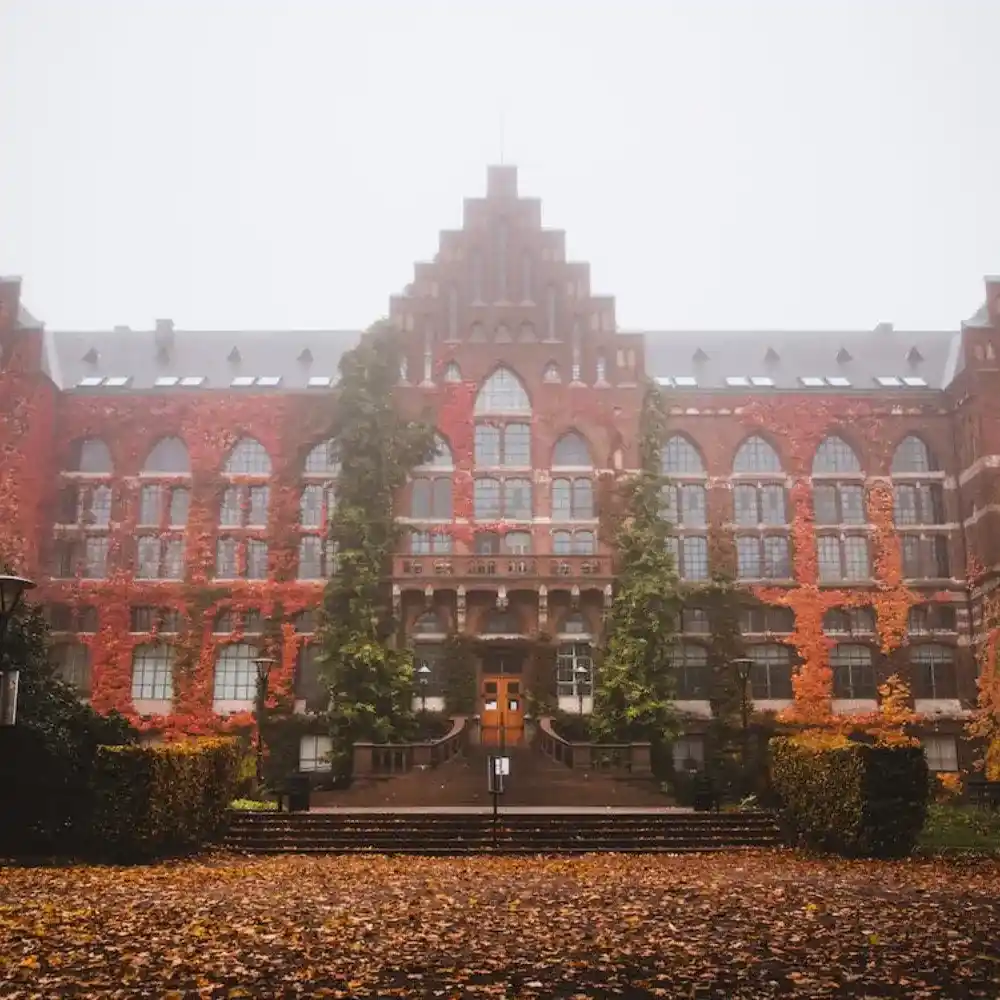
As society moved towards structured educational systems, the traditional role of these coffee shops was usurped by modern universities.
- Specialized Learning: Modern universities offered structured curricula and specialized learning, leading to formally recognized qualifications. This transition provided a more targeted, career-oriented form of education, appealing to the needs of an industrializing society.
- Rise of Academia: The growth of academia and scholarly institutions created a new space for intellectual discourse, attracting intellectuals and scholars away from the coffeehouses.
The decline of Penny Universities was an inevitable result of societal evolution. Although they could not sustain their prominence, these institutions left an indelible mark on educational history. Today, as we stand at the intersection of education and technology, we can draw valuable lessons from the past, rekindling the spirit of these venues in our quest for knowledge.
The Modern Resurgence of Penny Universities
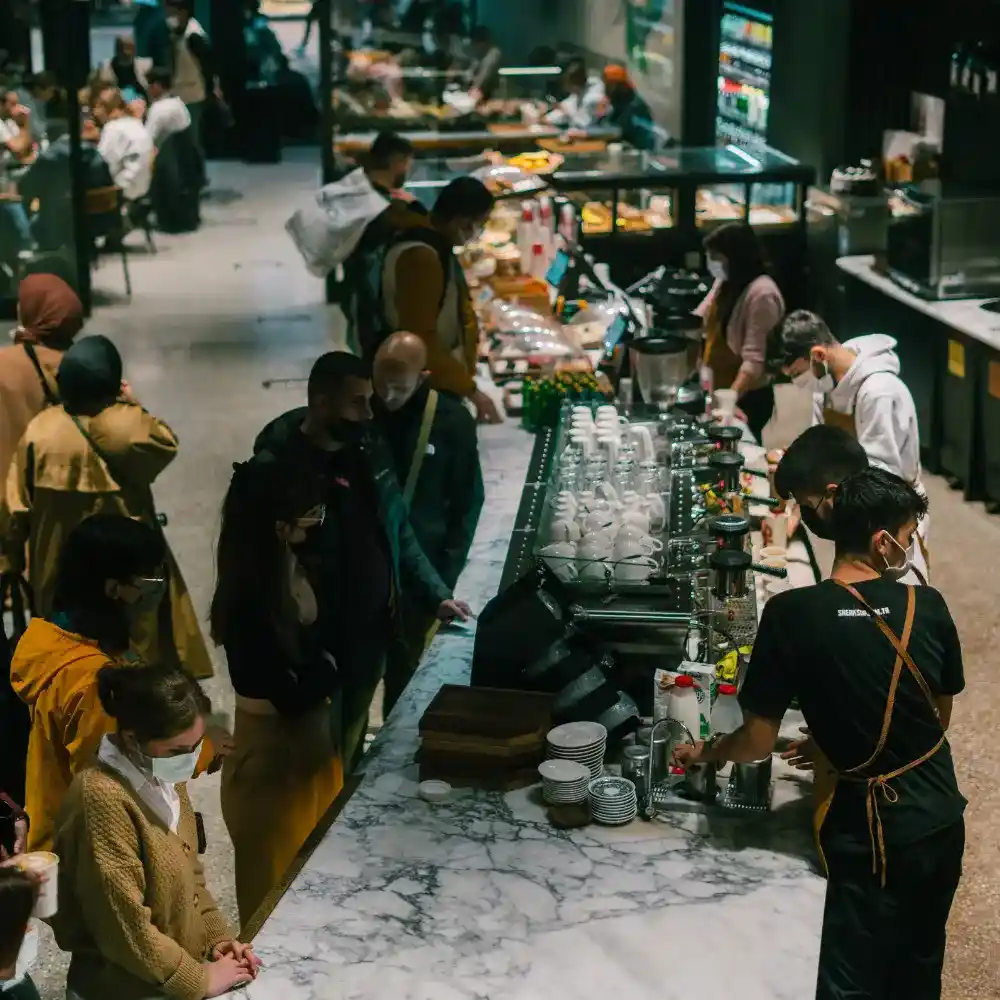
As the world grapples with information overload and the quest for meaningful, accessible learning, the spirit of these unique coffeehouses is experiencing a modern resurgence. Let’s explore how these historic institutions are making a comeback and adapting to the contemporary landscape.
Why Penny Universities are Relevant Today
In our rapidly evolving, increasingly interconnected world, the relevance and appeal of these venues have never been greater.
- Lifelong Learning: The emphasis on lifelong learning and continuous intellectual growth echoes the core principles of these coffee shops. As traditional educational systems struggle to keep pace with rapid technological and societal changes, the informal, continuous learning model of these venues holds significant appeal.
- Democratizing Knowledge: Today’s society is characterized by an increased focus on accessibility and equality of opportunity. The democratizing spirit of these coffeehouses aligns perfectly with this ethos, emphasizing that knowledge should be universally accessible, not restricted to certain social or economic classes.
- Community Building: In our digital age, where isolation and disconnectedness are common, the sense of community fostered by these social places provides a powerful antidote. The shared pursuit of knowledge can forge connections, foster empathy, and promote understanding among diverse individuals.
The Role of Technology in Reshaping Penny Universities
Technology has played a significant role in reshaping the concept of these coffeehouses for the modern era.
- Online Platforms: The advent of digital technology and the internet have enabled the creation of virtual Penny Universities. Online platforms facilitate the free exchange of ideas, promote intellectual discourse, and bring together individuals from around the world.
- Accessibility and Scale: Technology has made knowledge more accessible than ever. It allows these venues to operate at an unprecedented scale, reaching individuals in even the most remote corners of the globe.
- Diverse Learning Formats: The use of podcasts, webinars, and online courses allows modern Penny Universities to offer diverse learning formats, catering to different learning preferences and needs.
Case Studies of Modern Penny Universities

Several contemporary initiatives embody the spirit of Penny Universities.
- The Oxford Muse: Founded by Theodore Zeldin, The Oxford Muse aims to stimulate communication and empathy by sharing personal histories and experiences. Its Conversation Meals facilitate intellectual discourse.
- Coffeehouse Talks: The University of Nottingham hosts “Coffeehouse Talks” where students and staff members engage in informal discussions on various topics, fostering a culture of open debate and intellectual curiosity.
- MOOCs: Massive Open Online Courses (MOOCs) and platforms like Coursera, edX, and Khan Academy echo the ethos of these coffee shops. They provide free or low-cost courses to anyone with an internet connection, democratizing access to education.
The resurgence of these coffeehouses is a testament to their timeless appeal and adaptability. Even as they evolve and adapt to modern realities, they continue to uphold their core mission of democratizing knowledge and fostering intellectual discourse. They are a poignant reminder that learning is a lifelong journey, one that thrives on curiosity, diversity, and open dialogue.
Lessons from Penny Universities for Today’s Knowledge Economy
As we navigate the knowledge economy of the 21st century, the lessons we can glean from these coffee shops are both timely and timeless. As discussed earlier, they offer profound insights into the democratization of knowledge, lifelong learning, and the shaping of modern academic and intellectual spaces.
Democratization of Knowledge: Lessons from the Past

The democratizing ethos of Penny Universities serves as a powerful reminder of the importance of equal access to knowledge.
- Knowledge as a Universal Right: The belief that knowledge is a universal right, not a privilege, was the cornerstone of these venues. This principle is especially relevant in today’s knowledge economy where access to information can significantly influence opportunities and outcomes.
- Bridging the Knowledge Gap: The mission of these coffeehouses to make knowledge accessible to all, irrespective of social or economic standing, provides valuable lessons for modern efforts to bridge the knowledge gap. Initiatives like open-source software, open educational resources, and open-access publishing echo this ethos.
Impact on Lifelong Learning & Continuing Education
Penny Universities underscore the significance of lifelong learning – a concept gaining renewed importance in our rapidly evolving world.
- Embracing Change: The culture of continuous, informal learning fostered by these coffee shops serves as a model for embracing change and adapting to new paradigms. As technological advances redefine job roles and industries, this culture of lifelong learning is becoming increasingly critical.
- Learning Beyond the Classroom: The Penny University model, where learning extends beyond the classroom and into social spaces, encourages intellectual curiosity and fosters a holistic approach to education. It highlights the importance of experiential learning and real-world application of knowledge.
Influences on Modern Academic & Intellectual Spaces

Penny Universities have left an enduring imprint on modern academic and intellectual spaces.
- Fostering Intellectual Discourse: The tradition of open dialogue and intellectual discourse, central to Penny Universities, is mirrored in academic seminars, conferences, and symposia today. This tradition of discourse fosters intellectual growth, critical thinking, and innovative ideas.
- Multidisciplinary Approach: The broad range of topics discussed in these coffee shops serves as a precursor to the interdisciplinary studies we see in contemporary education. This approach promotes a holistic understanding of complex issues, encouraging learners to draw connections across various fields.
- Community Engagement: The focus on community engagement in these venues is reflected in the rise of community-based learning and service-learning programs in modern educational institutions. These programs underscore the importance of civic engagement and social responsibility in education.
As we strive to shape a more equitable, inclusive, and effective knowledge economy, the lessons from Penny Universities offer invaluable insights. They remind us that learning is a lifelong, communal endeavor – one that thrives on openness, dialogue, and diversity.
Conclusion
As we journey through the annals of history, the story of these coffeehouses provides a remarkable testament to the enduring power of knowledge and the timeless appeal of intellectual exchange. In their simplicity, they represented an idea that was profoundly ahead of its time – that knowledge is not a privilege, but a universal right.
Today, as we navigate an increasingly complex and connected world, these historic bastions of intellectual discourse are finding renewed relevance. Technology has breathed new life into the concept, shaping modern versions of these venues that resonate with our digital age. From open online forums to accessible MOOCs, the spirit of these coffee shops is echoing across the globe, rekindling their ethos of accessible, inclusive learning.
The lessons we glean from these past institutions are not merely artifacts of a bygone era but critical guideposts for our future. They underscore the importance of lifelong learning, the democratization of knowledge, and the need for intellectual spaces that foster open, respectful dialogue. As we strive to shape a knowledge economy that is both equitable and inclusive, we would do well to remember the Penny Universities, their values, and their vision. Their legacy is a reminder of what we can achieve when we view knowledge not as a commodity but as a shared treasure, illuminating our collective path forward.
FAQ
How did Penny Universities contribute to the democratization of knowledge?
These venues made knowledge accessible to everyone, irrespective of their social or economic status, fostering a culture of open debate and intellectual discourse.
Why did Penny Universities decline, and what role did industrialization play?
These coffee shops declined due to societal changes including the rise of formal education and industrialization, which shifted focus from intellectual pursuits to manufacturing and business, and accelerated the pace of life.
How is the concept of Penny Universities being revived in today's digital age?
The concept of these coffeehouses is being revived through online platforms that promote free intellectual discourse, community building, and lifelong learning, making knowledge accessible to a global audience.
How can lessons from Penny Universities be applied to today's knowledge economy?
Lessons from these venues can be applied by advocating for the democratization of knowledge, promoting lifelong learning, and fostering open, intellectual dialogue, critical in today's rapidly evolving knowledge economy.














